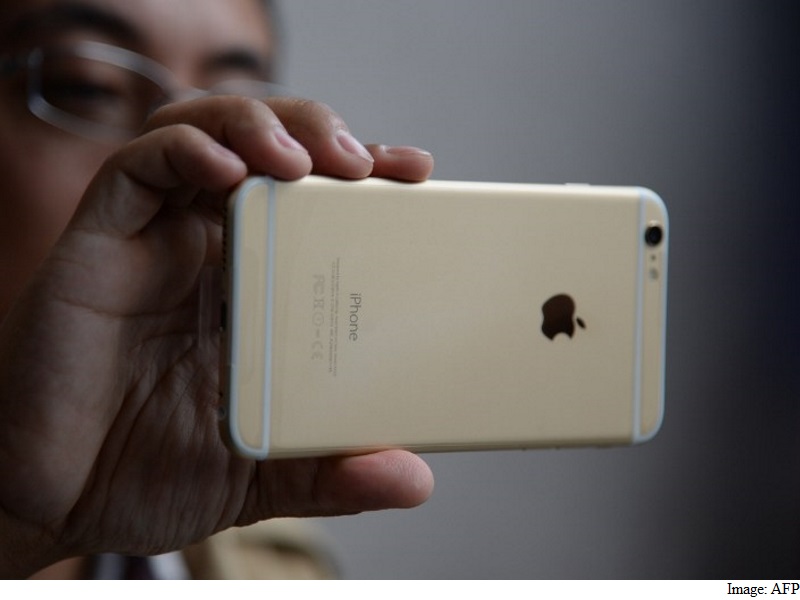- Home
- Mobiles
- Mobiles News
- Apple Wins Patent Ruling Against Samsung in US Appeals Court
Apple Wins Patent Ruling Against Samsung in US Appeals Court

The U.S. Court of Appeals for the Federal Circuit in Washington, D.C. said the lower court abused its discretion when it denied Apple Inc an injunction after a jury ordered Samsung Electronics Co Ltd to pay $120 million in May, 2014 for infringing three of Apple's patents.
The case involved Apple patents covering the iPhone's slide-to-unlock, auto correct and data detection features.
The 2-1 appeals court ruling said that Apple's proposed injunction is narrow because it does not want to ban Samsung's devices from the marketplace, and that Samsung can remove the patented features without recalling its products.
"Apple does not seek to enjoin the sale of lifesaving drugs, but to prevent Samsung from profiting from the unauthorised use of infringing features in its cellphones and tablets," the court said.
The case was sent back to a federal district court in San Jose, California, to reconsider the injunction.
After the jury verdict last year, U.S. District Judge Lucy Koh in August, 2014 refused Apple's request for a permanent injunction to stop Samsung from selling the infringing features on its smartphones.
In a statement, Samsung sought to reassure its customers that all of its flagship smartphones will remain available for sale and customer service support.
Calling Apple's injunction request "unfounded," a spokeswoman said Samsung will ask the full slate of Federal Circuit judges to review Thursday's decision.
Apple reiterated its previous comments about the case, saying "Samsung willfully stole our ideas and copied our products."
In a separate, blockbuster case, the Federal Circuit in May stripped about $382 million (roughly Rs. 2,527 crores) from a $930 million (roughly Rs. 6,152 crores) judgment against Samsung stemming from a 2012 verdict for infringing Apple's patents and copying the look of the iPhone. Both companies are now sparring in Koh's court over a final damages figure in that case.
The impact of Thursday's decision on Samsung could be limited because the company has been bracing for a possible injunction, said Michael Risch, a professor of law at Villanova University School of Law. Samsung has probably designed around the features or abandoned them already, he said.
In the Apple-Samsung patent wars, "Apple has won every round," he said. "But the reality is it hasn't actually slowed Samsung down."
The case is Apple Inc v. Samsung Electronics Co Ltd, in the U.S. Court of Appeals for the Federal Circuit, No. 14-1802.
© Thomson Reuters 2015
For the latest tech news and reviews, follow Gadgets 360 on X, Facebook, WhatsApp, Threads and Google News. For the latest videos on gadgets and tech, subscribe to our YouTube channel. If you want to know everything about top influencers, follow our in-house Who'sThat360 on Instagram and YouTube.
Related Stories
- Samsung Galaxy Unpacked 2025
- ChatGPT
- Redmi Note 14 Pro+
- iPhone 16
- Apple Vision Pro
- Oneplus 12
- OnePlus Nord CE 3 Lite 5G
- iPhone 13
- Xiaomi 14 Pro
- Oppo Find N3
- Tecno Spark Go (2023)
- Realme V30
- Best Phones Under 25000
- Samsung Galaxy S24 Series
- Cryptocurrency
- iQoo 12
- Samsung Galaxy S24 Ultra
- Giottus
- Samsung Galaxy Z Flip 5
- Apple 'Scary Fast'
- Housefull 5
- GoPro Hero 12 Black Review
- Invincible Season 2
- JioGlass
- HD Ready TV
- Laptop Under 50000
- Smartwatch Under 10000
- Latest Mobile Phones
- Compare Phones
- Moto G15 Power
- Moto G15
- Realme 14x 5G
- Poco M7 Pro 5G
- Poco C75 5G
- Vivo Y300 (China)
- HMD Arc
- Lava Blaze Duo 5G
- Asus Zenbook S 14
- MacBook Pro 16-inch (M4 Max, 2024)
- Honor Pad V9
- Tecno Megapad 11
- Redmi Watch 5
- Huawei Watch Ultimate Design
- Sony 65 Inches Ultra HD (4K) LED Smart TV (KD-65X74L)
- TCL 55 Inches Ultra HD (4K) LED Smart TV (55C61B)
- Sony PlayStation 5 Pro
- Sony PlayStation 5 Slim Digital Edition
- Blue Star 1.5 Ton 3 Star Inverter Split AC (IC318DNUHC)
- Blue Star 1.5 Ton 3 Star Inverter Split AC (IA318VKU)















